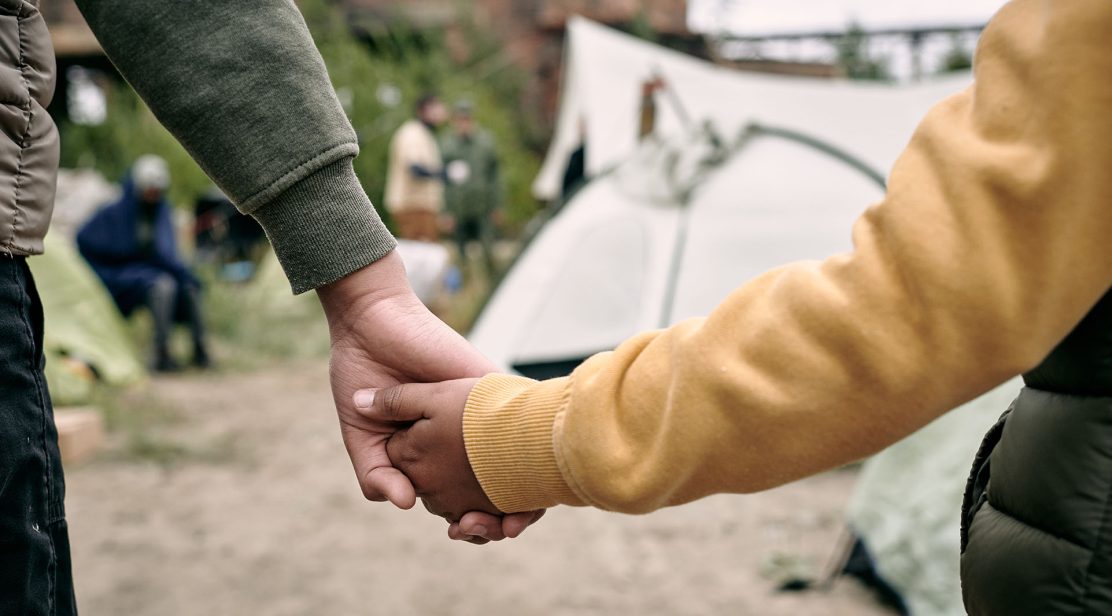Building a More Peaceful Future Through Education
28 Sep 2023
This blog was originally published by the Global Partnership for Education. A new study by the Institute for Economics and Peace and GPE shows how inclusive... Read More
By Dr Kate Moriarty

This blog post introduces a series of articles that highlight the role of quality education in building just and sustainable peace, with contributions from humanitarian practitioners and academics. As the guest editor for this series, it has been a pleasure to read and understand more about the work and ideas the authors highlight, which collectively open our eyes to the possibilities that rights-based quality education can contribute to building just and sustainable peace. I hope you will engage thoughtfully with the issues they raise and in turn share your experiences of quality education’s role in building just and sustainable peace and promoting a culture of human rights.
To locate the forthcoming blog posts within global education policy debates on quality education and it power to transform, it is timely to reflect on events in New York this week, where education policy makers, practitioners and world leaders have been meeting to discuss the future of education. The Transforming Education Summit (TES) aimed at galvanising renewed action on education to meet the commitments of Sustainable Development Goal 4 (SDG 4), proclaims that it is time to rethink and reimagine the purpose, content and delivery of education; to transform education for peace, inclusion and sustainability. While the role of education in building just and sustainable peace is central to the headline, it will remain to be seen if it is given adequate space in the policy outcomes and investments that follow in the months and years ahead.
Quality education – formal and non-formal – has the ability to bring children, young people and communities together. Yet education that promotes a culture of human rights, and aims to build peace, is often considered a niche area, an add-on, rather than a central part of education policy discussions. While Sustainable Development Goal 4 includes education for peace, this target is arguably a residual target (Moriarty and Sayed, 2020), with education for peace, human rights and sustainable development frequently not considered the same priority as other areas. At the TES-pre summit, held in Paris in June this year, more than once I heard comments such as ‘we need to get the basics in place first, literacy and numeracy are the foundational skills’. It is, in my opinion, to all our detriment if we see quality education that has peace building as its objective as something to be considered only later once all the other challenges faced by education systems are met. Literacy and numeracy are without doubt fundamental – and we know there is a learning crisis that has been exacerbated by the COVID-19 pandemic – however, while key skills, alone they cannot repair the trauma of conflict; they cannot ensure respect towards refugees; they cannot create shared values necessary to build a peaceful, just and sustainable future.
Transforming education means transforming our (pre-)conceptions of what is and isn’t possible, it means rejecting the hierarchy of some learning over other learning. A child can learn values that promote understanding of human rights and build peace as they learn to read and write. Learning to live together, to reject discrimination, to be inclusive, to understand our rights are fundamental aspects of the right to education which calls for education “to strengthen respect for human rights and fundamental freedoms, to promote understanding, tolerance and friendship among all nations, racial or religious groups, and acknowledge its contribution to the maintenance of peace” (Article 26.2). These are also core commitments of SDG 4. To draw from the ideas of Brazilian education philosopher Paulo Freire, education should enable children and young people not just to read the word but to also read the world.
This blog series provides a snapshot of quality education’s contribution to building peace through different lenses, ranging from a historical analysis of education and genocide; to the role of sports education in strengthening respect, and other diverse examples of educational initiatives, that seek to promote dialogue for understanding, non-violence and peace. The issues and ideas shared in these blog posts can serve to remind all of us of working in the field of education that any discussion on transforming education should also prioritise education that supports social justice, offers safe spaces for children growing up in situation of oppression and violence, and creates joy. Education for sustainable development, human rights, global citizenship and peace must be placed on the same footing as other learning.
For those leaving the TES summit in New York this week, or those engaging in national or regional level education policy forums in the weeks and months ahead, what will you do to transform education for peace, inclusion, and sustainability?
Dr. Kate Moriarty is an Honorary Research Fellow in the Centre for International Education at the University of Sussex, whose doctoral research “Developing a Transformative Vision of Global Education?” takes a critical look at quality education and learning for SDG 4. In her professional role, Kate is Deputy Director of Campaigns and Education: Head of Human Rights Education, at Amnesty International. Please note: the views expressed here do not represent the policy or positions of Amnesty International or Sussex University.
Find below the most recent posts in the Role of Quality Education in Building Just and Sustainable Peace series: